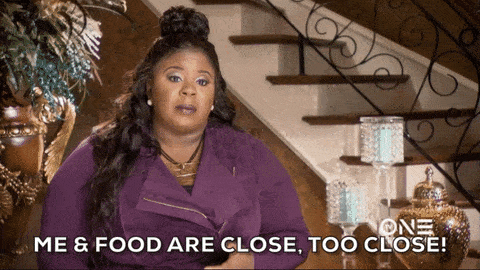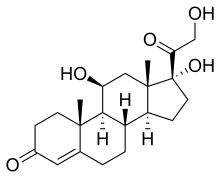Good morning, this is UniScoops! Did you miss us? No? Well, we’re back anyway!
So, without further ado…
Here’s a taste of what we’re serving today:
You Are What Your Mother Eats: Fetal Developmental Programming 🍔
Death by Double Yellow Lines 🚖
PLUS: Why America fell for guns, Has the UK got a problem with Maths?, and EngineerGirl.
MEDICINE
You Are What Your Mother Eats: Fetal Developmental Programming 🍔

Felt.
Developmental programming describes the long-term effects on the offspring of intrauterine conditions. Without mature organs, a fetus relies entirely on the placenta for almost all physiological functions (gas exchange, nutrient uptake, waste removal, to name a few) and is therefore greatly susceptible to adverse conditions in the mother’s environment. Essentially, if the mother isn’t getting the right things, it can affect the baby’s health down the line. For example, studies on various animals have shown that if a mother doesn't get enough protein during pregnancy, her offspring are more likely to develop diabetes and other health problems later in life. The number of cells responsible for releasing insulin (the hormone that regulates blood sugar) is reduced, and important proteins that help the baby’s body use insulin become less active.
💡 Things to consider
Cortisol: Cortisol is our body’s “stress hormone”, signalling to both our brain and periphery that unfavourable conditions are present, whether that be hypoxia, low nutrition, or psychological stress. The mother can also release cortisol and the placenta acts as a barrier (through enzyme 11β-HSD2, which inactivates cortisol before it gets to the fetal circulation). However, this is not a perfect barrier and excess cortisol can be observed in the fetus in times of stress. Excessive cortisol has been found to increase blood pressure in offspring, reduce kidney development and function, and reduce overall growth.

Cortisol
Epigenetics: Epigenetics describes chemical changes to nucleic acids that regulate their expression but do not alter the amino acid code itself (i.e. not a mutation). Methylation reduces expression and acetylation increases expression. These chemical changes can be continually modified, allowing for crosstalk between genes and the environment. For example, in obese mothers, the developing fetus is found to have hyperinsulinemia and a reduced expression of IRS-1, indicative of reduced insulin sensitivity: a critical facet of diabetes. Exercise treatment is found to reduce these effects close to control levels through reducing the methylation of such signalling molecules. Epigenetic mechanisms can form the basis of developmental interventions, such as acetyltransferase enzyme medications to increase expression of deficient proteins.
Thrifty gene hypothesis: The thrifty gene hypothesis is that certain populations have developed a specific genetic profile to protect them in certain environmental conditions, for example, they may determine increased fat storage in times of famine, representing a survival advantage. However, when shifting to a modern environment, this can result in obesity and type 2 diabetes. Developmental programming reflects this to an extent: the physiology of the fetus is altered to suit the environmental conditions communicated through the placenta. Therefore, it is critical for mothers to tailor their environments, nourish themselves well, and reduce stress where possible in order to prevent inappropriate developmental programming from taking place.

We can get behind reducing stress.
🔎 Find out more
LAW
Death by Double Yellow Lines 🚖
Picture this: you live in a world where getting caught for a single parking violation (such as parking on double yellow lines) led to the ultimate penalty: death. This thought experiment, raised by legal scholars and philosophers alike, raises a lot of interesting questions about what makes a good law.

Driving instructor: Please park into that spot there’. Us:
💡 Things to consider
Fear Factor: In this hypothetical scenario, it’s very probably that parking violations would vanish overnight. Streets would be clear, and traffic would (finally!) flow freely. But at what cost? Some argue that fear wouldn’t create a society of responsible drivers. Rather, it would simply breed a dystopian society where people have the constant anxiety of accidentally crossing a double yellow line, leading to the potential for a minor mistake turning deadly. Does fear truly change behaviour, or does it simply encourage people to avoid getting caught? Take speeding for example. While harsh penalties might deter some, excessive fines could also push people to take risks to avoid detection, potentially creating a more dangerous situation.
Proportionality: Sure, double yellow lines are important for safety and traffic flow, but our intuition seems to tell us that a parking violation doesn’t really warrant a death sentence. You might argue that a fine, community service, or a license suspension might be a more fitting consequence for a minor traffic violation. The death penalty, on the other hand, is a punishment reserved for the most heinous crimes. Do you think laws should be proportionate, and if so, why? Is proportionality really that important if it stops people, say, parking on double yellow lines?

You tell ‘em Joe.
What actually makes a ‘good’ law?: At first glance, it seems like a ‘good’ law is one that prevents people from doing the wrong things, such as parking on double yellow lines. However, as we can see, this can lead to other undesired consequences, which need to be considered. This then leads to the more fundamental question of what actually makes a good law. Yes, making death the punishment for a parking violation might reduce parking violations. However, it may not reflect the moral intuitions of the community, or protect the collective safety of the community. So, does the effectiveness of the law in preventing crimes link to how good the law is?
🔎 Find out more

🍒 The cherry on top
🇺🇸 Why America fell for guns: While guns were once seen primarily as practical tools, recent decades have witnessed a surge in gun use for self-defence. This essay delves into the reasons behind this shift and the complex factors shaping American gun culture. A thought-provoking read for anyone interested in History, Sociology, or Politics!
🧮 Has the UK got a problem with Maths?: Is it time to revamp math education? This FT YouTube documentary looks at why many adults lack basic numeracy skills, and students are often discouraged by a curriculum that emphasises abstract concepts over practical applications. A great watch for anyone interested in Education, Public Policy, or Maths!
👷♀️ EngineerGirl: This website, created by the National Academy of Engineering, is packed with resources to show you the exciting possibilities the field has to offer. Explore different engineering disciplines, get involved in projects, and discover how YOU can make a difference through engineering! Perfect for anyone interested in Engineering.

👀 Keep your eyes peeled for…
April 15th:
April 16th:
April 17th:
April 18th:

🗳️ Poll
How was today's email?
That’s it for this week! We’d like to thank this week’s writers: Rob Folkard (Medicine) and Gabriel Pang (Law).
💚 Like UniScoops?
Forward this edition to someone who’d love to read it for extra kudos!
📢 Want to tell us something?
Reply to this email to tell us what you think about UniScoops, or to give us any suggestions on what you’d like to see.
🧐 New to UniScoops?
Get your weekly fix of academia with our fun, thought-provoking newsletter. No jargon, no fluff, just the good stuff. Subscribe today.
